The eight Senate seats most likely to flip in 2024
Senate Democrats are preparing to play defense in 2024 as they look to preserve their narrow majority in the upper chamber.
The party is defending more than twice as many seats as Republicans, and it’s already facing the possibility that some of its incumbents could retire, leaving open competitive seats.
There are also few opportunities for Democrats to go on the offensive. Their best targets appear to be Florida and Texas, but both states have proved elusive for Democrats in recent years.
Here are eight Senate seats most likely to flip in 2024:
Arizona

Rep. Ruben Gallego (D-Ariz.) speaks during a House Armed Services Committee hearing on July 9, 2020, on Capitol Hill in Washington. (Greg Nash/Pool via AP, File)
The 2024 Senate race in Arizona is already shaping up to be a chaotic one: Sen. Kyrsten Sinema (I-Ariz.) left the Democratic Party last year to become an Independent, and potential Democratic challengers, including Rep. Ruben Gallego (Ariz.), are eyeing her seat.
It’s not an ideal position for Democrats to be in as they look to stave off Republicans in a state that has only emerged as a battleground over the past few election cycles.
The party has capitalized on appealing to both moderates and liberals in the state in recent years, and there’s at least some concern that the presence of both Sinema and a Democrat in the race could divide that vote.
Of course, Arizona Republicans have their own set of challenges to deal with. The party is at odds over its direction, especially after a disappointing 2022 midterm election cycle. And one of their strongest potential recruits, former Gov. Doug Ducey, has said that he’s not considering a Senate bid.
Michigan

Sen. Debbie Stabenow, D-Mich., speaks outside the state Capitol in Lansing, Mich., Jan. 1, 2023. Stabenow announced on Jan. 5, she will not run for reelection in 2024. (AP Photo/Al Goldis, File)
The 2024 Senate race in Michigan appeared promising for Democrats just a couple of weeks ago.
But Sen. Debbie Stabenow’s (D-Mich.) announcement earlier this month that she would not seek reelection in 2024 scrambled the party’s calculus in the race and handed Republicans a prime opportunity to go after an open Democratic seat.
So far, no Democrat has stepped up to the plate to replace Stabenow, though several are weighing campaigns, including Reps. Elissa Slotkin (Mich.) and Debbie Dingell (Mich.). Other high-profile Democrats, like Transportation Secretary Pete Buttigieg and Gov. Gretchen Whitmer, have already ruled out Senate bids.
The uncertainty stemming from Stabenow’s coming retirement sets the stage for a potentially long and competitive Democratic primary that could complicate the party’s hopes of holding the seat next year.
On the other hand, Republicans haven’t yet settled on a candidate either. What’s clear is that the race is emerging as one of the most contentious in the country.
Montana
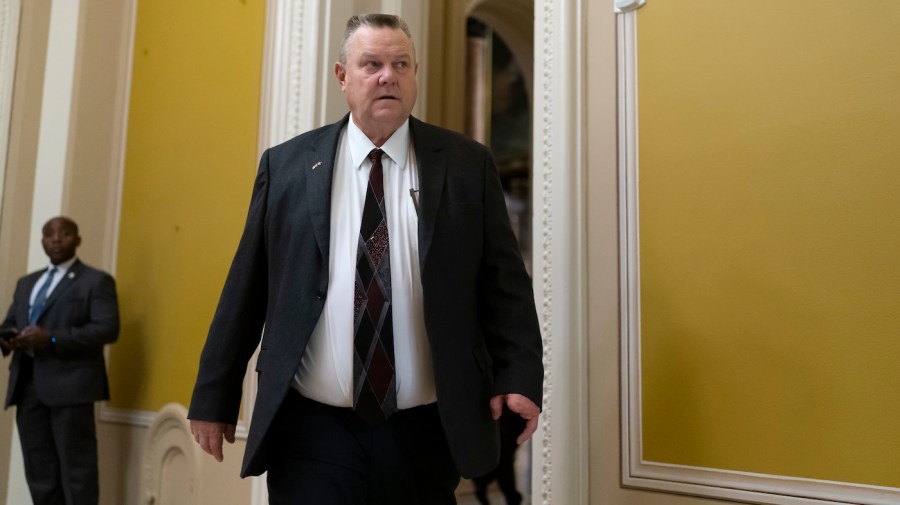
Sen. Jon Tester (D-Mont.) arrives for the Senate Democratic Caucus leadership election at the Capitol in Washington, Thursday, Dec. 8, 2022. (AP Photo/J. Scott Applewhite)
Sen. Jon Tester (D-Mont.) narrowly eked out a win in 2018, defeating Republican Matt Rosendale by a scant 3.5-point margin.
But unlike 2018, when a blue wave helped propel Democrats into the House majority, the party is facing a tougher political landscape in 2024. Not only will they be defending more than twice as many Senate seats as Republicans, but they’ll likely be on the ballot with President Biden, whose approval rating remains relatively low.
At the same time, Montana isn’t exactly a swing state. Former President Trump carried it by more than 16 points in 2020, while Sen. Steve Daines (R) won reelection by a 10-point margin.
There’s also the fact that Tester hasn’t yet committed to running for another term in the Senate. If he ultimately decides to step aside, it would deprive Democrats of a battle-tested incumbent who they believe has the best shot of holding the seat.
Nevada
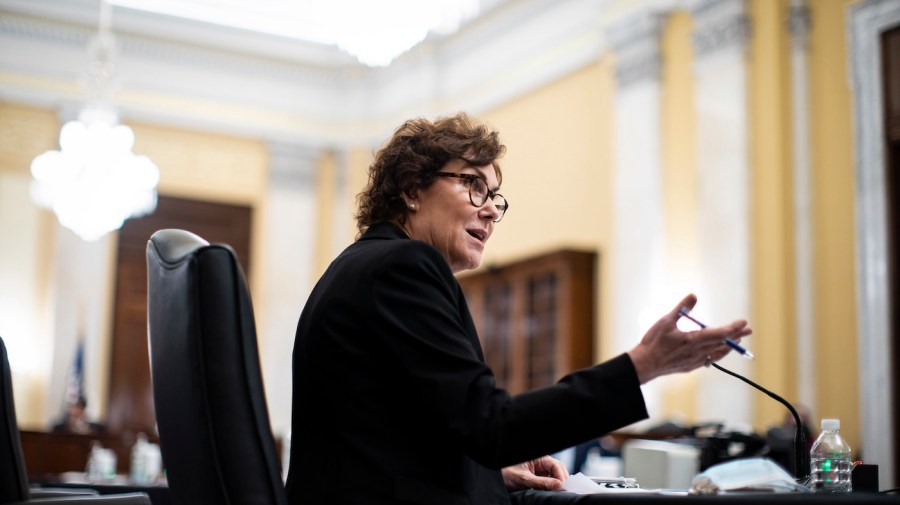
Sen. Jacky Rosen (D-Nev.) speaks during a Senate Small Business and Entrepreneurship hearing to examine implementation of Title I of the CARES Act, Wednesday, June 10, 2020 on Capitol Hill in Washington. (Al Drago/Pool via AP)
The 2022 Senate race in Nevada was one of the most competitive of last year’s midterm elections. Sen. Catherine Cortez Masto (D-Nev.) ultimately won reelection, but the race was decided by fewer than 8,000 votes.
Things aren’t expected to be much easier for Sen. Jacky Rosen (D-Nev.) in 2024. Nevada is a perennial battleground, and Republicans are sure to contest the state aggressively once again, especially given how close last year’s race was.
It’ll also be Rosen’s first reelection bid, and the political environment next year is expected to be very different from the one she ran in during her 2018 campaign, when she ousted former Sen. Dean Heller (R).
That fact alone makes Nevada one of the GOP’s best pickup opportunities for 2024.
Ohio
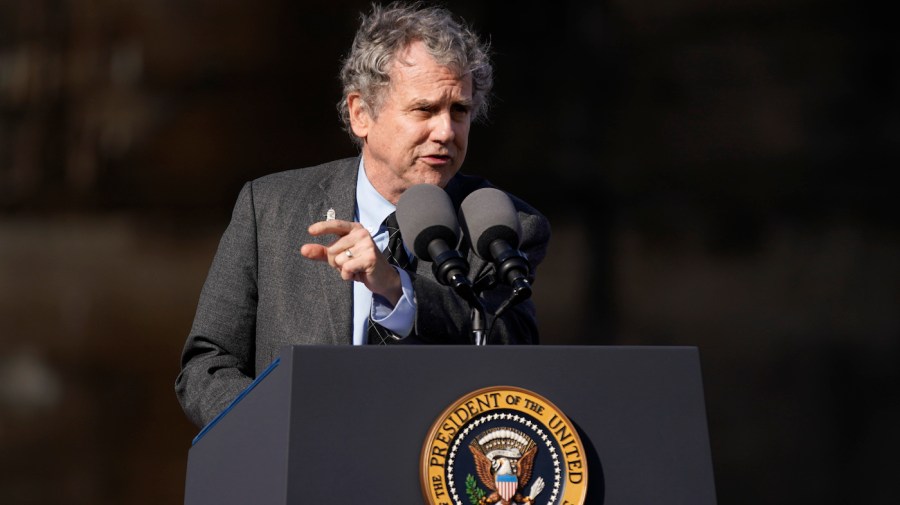
Sen. Sherrod Brown (D-Ohio) speaks about President Joe Biden’s infrastructure agenda near the Brent Spence Bridge, Wednesday, Jan. 4, 2023, in Covington, Ky. (AP Photo/Patrick Semansky)
Sen. Sherrod Brown (D-Ohio) survived his last reelection bid in 2018, handing Democrats a key win in a former swing state that has lurched further and further to the right in recent years.
Of course, the big question is whether Brown can do it again. Trump carried the state in 2016 and again in 2020. And former Rep. Tim Ryan (D) lost a Senate bid there last year, deepening Democrats’ woes in the Buckeye State.
Democrats say that Brown has a unique ability to talk to working-class voters and a proven ability to resonate in an increasingly red state.
Still, Republicans are expected to contest the seat fiercely next year. And again, Biden will likely be on the ballot, as well, potentially making it harder for Brown to run a campaign independent of the White House.
Pennsylvania
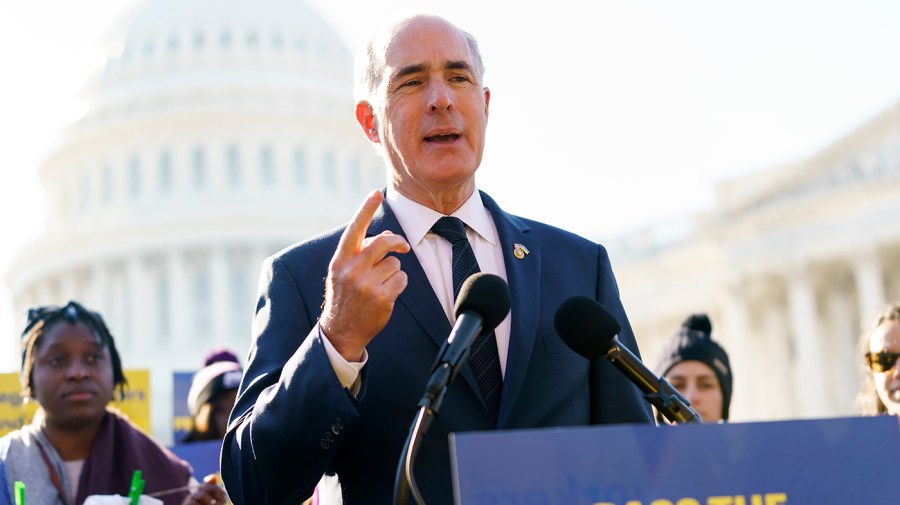
Sen. Robert Casey (D-Pa.) addresses reporters during a press conference on Thursday, December 1, 2022 to discuss the Pregnant Workers Fairness Act. (Greg Nash)
The 2022 midterm elections in Pennsylvania didn’t go as Republicans had hoped. Their Trump-endorsed Senate nominee Mehmet Oz lost to Sen. John Fetterman (D-Pa.), and Democrats also held onto the governor’s mansion.
But 2024 will bring new challenges. While Fetterman won his race last year, Democrats and many Republicans say that Oz was a particularly weak candidate. There’s also the fact that Sen. Bob Casey (D-Pa.) was recently diagnosed with prostate cancer, raising questions about what it might mean for his 2024 reelection bid.
Casey has said that he has an “excellent prognosis,” and he’s expected to move forward with his reelection campaign. Nevertheless, Republicans are hoping to field a stronger challenger next time around, intent on avoiding a repeat of 2022.
West Virginia
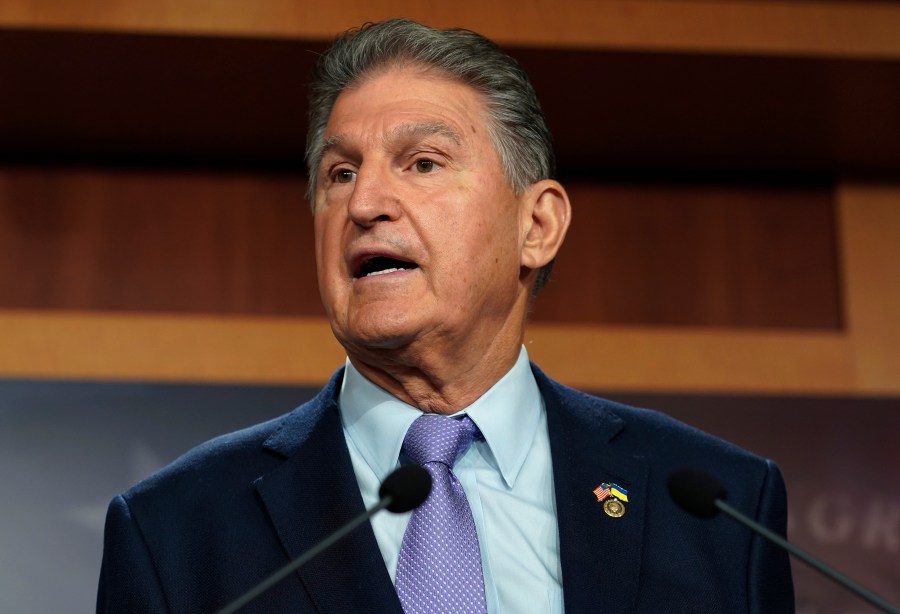
Sen. Joe Manchin (D-W.Va.) speaks during a news conference on Sept. 20, 2022, at the Capitol in Washington. (AP Photo/Mariam Zuhaib, File)
Sen. Joe Manchin (D-W.Va.) pulled out a narrow 3-point victory in his last bid for reelection, maintaining a seat for Democrats in an otherwise deep-red state.
But West Virginia’s conservative political makeup means that even a moderate like Manchin isn’t safe. Trump carried the state in 2020 by nearly 40 points, while Sen. Shelley Moore Capito (R) pulled off an even bigger, 43-point win.
What’s more, many Democrats believe that Manchin is perhaps the only Senate candidate who can beat a Republican in West Virginia, and he hasn’t yet committed to running for another term. If he decides to retire from the Senate, it would almost certainly take the seat out of play for Democrats.
Wisconsin
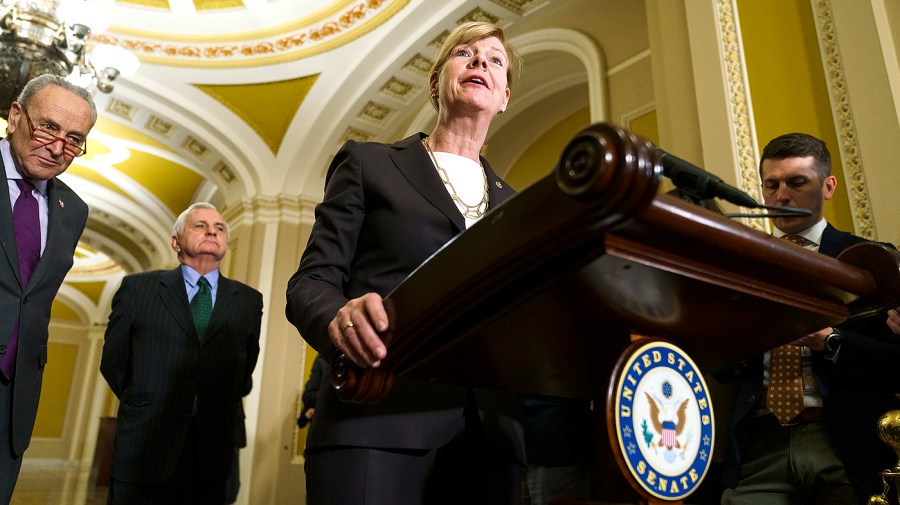
Sen. Tammy Baldwin (D-Wis.) addresses reporters following the weekly policy luncheon on Tuesday, November 29, 2022. (Greg Nash)
Sen. Tammy Baldwin (D-Wis.) hasn’t said whether she’ll seek reelection next year, but even if she does, she’s certain to find herself in one of the closest-watched Senate contests in 2024.
Democrats are eager to get Baldwin to commit to another Senate run. After all, she’s won twice before by solid margins. nearly 6 percentage points in 2012 and more than 10 points in 2018.
Still, Wisconsin remains a crucial battleground state with a propensity to swing wildly from one election to another.
Biden carried it in 2020 by less than 1 percentage point after Trump narrowly won it in 2016. And just last year, Wisconsin voters handed Sen. Ron Johnson (R) another term in the Senate, choosing a staunch conservative ally of Trump over now-former Lt. Gov. Mandela Barnes.
Copyright 2024 Nexstar Media Inc. All rights reserved. This material may not be published, broadcast, rewritten, or redistributed..

















